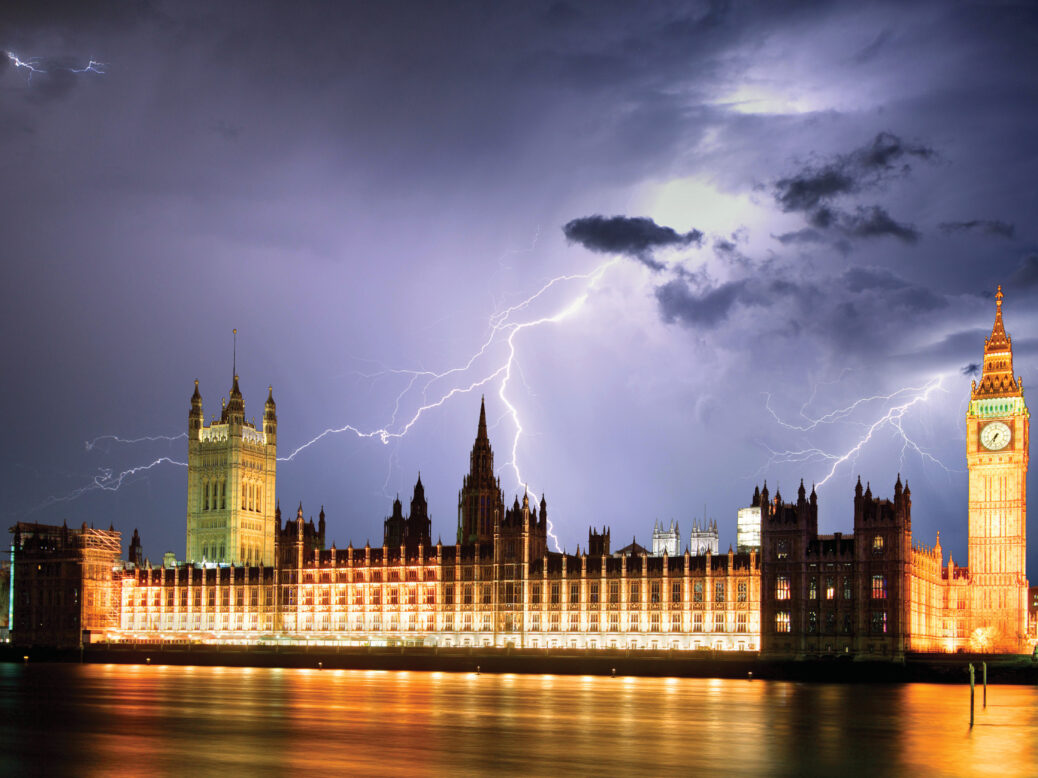
Constitutional outrage is never in short supply in British politics. Though there isn’t much that is formally forbidden by the constitution, few things can be done in a political crisis without courting the charge from opponents that they are unconstitutional. In proroguing parliament and curtailing the number of days MPs will sit before 31 October, Boris Johnson has given the opposition and his internal party critics an easy chance to stand as the constitution’s defenders against an executive bent on shredding the country’s democracy. But rhetorical posturing about the constitution in fraught political circumstances is itself a constitutional problem. The UK’s constitution requires the executive and parliament to exercise prudent judgement mediated through the UK’s historical experience. This imperative applies to words and deeds, and those wishing to stop Brexit have themselves proved reluctant to accept it.
This country’s accumulated constitutional customs ultimately uphold the idea that power rests on the consent of those who are governed. Any sober reflection on the UK’s history will show that overturning a referendum result before it has first been implemented would be a precipitous act. Consequently, members of parliament who ran for parties with a manifesto promise to implement the referendum result and who have since expended considerable effort to prevent Brexit are taking tremendous constitutional risks. Members of parliament who have passed laws purportedly to realise Brexit but in practice to buy time to thwart it are being similarly cavalier, as have those who – by signalling to the EU27 that parliament would obstruct no deal or prevent Brexit all together – have impeded the executive’s ability to negotiate an orderly withdrawal that parliament could accept.
These actions assume that more value should be attached to what MPs think about Brexit than to the referendum result, or to parliament’s willingness thus far to keep the government in office by shunning a further confidence vote. Parliamentary sovereignty is not a defence. Parliament’s sovereign authority is no more and no less than to legislate. Its sovereignty is, anyway, not the sum total of the constitution but, as the legal theorist AV Dicey explained, one part of it, along with the rule of law and constitutional conventions, which were in the final instance there to protect the democratic place of the people.
The consent of the people is supposed to constrain how in practice parliament exercises its authority to legislate. That is why, for example, Stanley Baldwin had parliament dissolved to hold a general election in 1923 when he wanted to implement tariff reform, and it is why Harold Wilson insisted there had to be a referendum on the UK joining the European Community – if necessarily retrospectively.
Those who wish to stop Brexit are not good-faith defenders of the principle of parliamentary sovereignty they now purport to champion. It takes some chutzpah to assert that parliamentary sovereignty requires the legislature to triumph over the executive so that the UK can stay in a constitutional order that places EU law above parliament’s authority to legislate. Such bad-faith arguments do not stop here. With some honourable exceptions such as Kenneth Clarke, many members of parliament who say they oppose no deal at any cost clearly do not, having refused to act through last winter and spring in the one way that would have guaranteed this outcome could not happen.
The rhetorical deceit on no deal from these MPs itself lacks constitutional prudence. By opposing no deal having already openly eschewed the withdrawal agreement, they are intimating that a referendum for which parliament legislated to let the electorate decide a massive political question was only to have consequence if Leave lost.
Arguments that parliament could now legislate for a second referendum seem hollow coming from MPs who have exercised so little respect for the outcome of the first. Jo Swinson has already suggested she would not accept a second Leave vote. Neither would the SNP. Ten Conservative and 121 Labour MPs voted in the second round of indicative votes to revoke Article 50 if no deal were imminent.
None of this constitutional casuistry justifies Johnson’s own recklessness in manipulating the customs about parliamentary sessions and recesses to advance Brexit and avoid parliamentary scrutiny. Provoking appeals to the High Court and demonstrations outside Buckingham Palace could only ever raise the constitutional stakes. There are also, of course, any number of potent criticisms that can be directed against the decision to leave the EU, the manner in which the government pursued Article 50 negotiations and what individuals in the Leave campaign have said and done.
But in terms of constitutional prudence, the government’s errors, illusions and inflammatory rhetoric do not compare with treating the referendum result as disposable. The referendum allowed voters to express a view on EU membership uninhibited by party voting habits or what anyone in parliament thought. That is what referendums offer, even if governments who pursue them hope voters will treat them as confidence votes. This one had been a long time coming. There was an issue about the UK’s consent to the EU that politicians had suppressed with referendum promises that were never realised.
It was a momentous decision when the House of Commons finally agreed to take the risk of asking the electorate whether it consented to the part of the constitution defined by EU membership. Parliament cannot, with any semblance of constitutional responsibility, now exercise judgement as if it did not.
“The battle for parliament”: read the rest of our symposium on Britain’s political crisis here.



